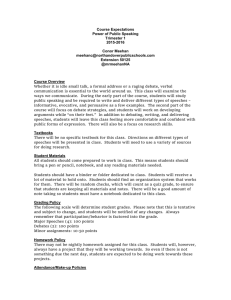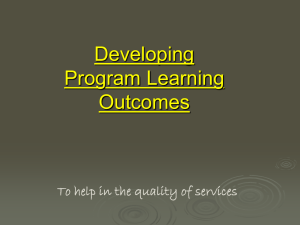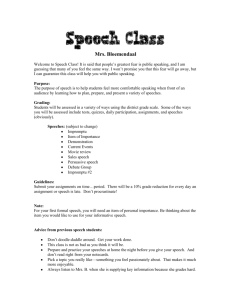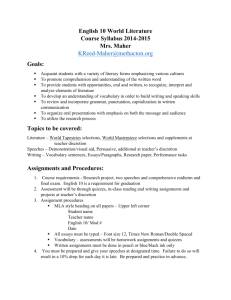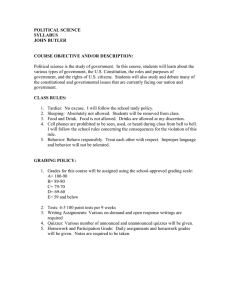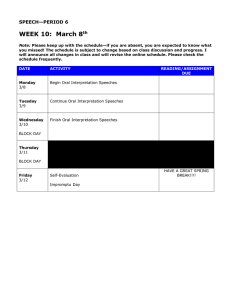C S OURSE
advertisement
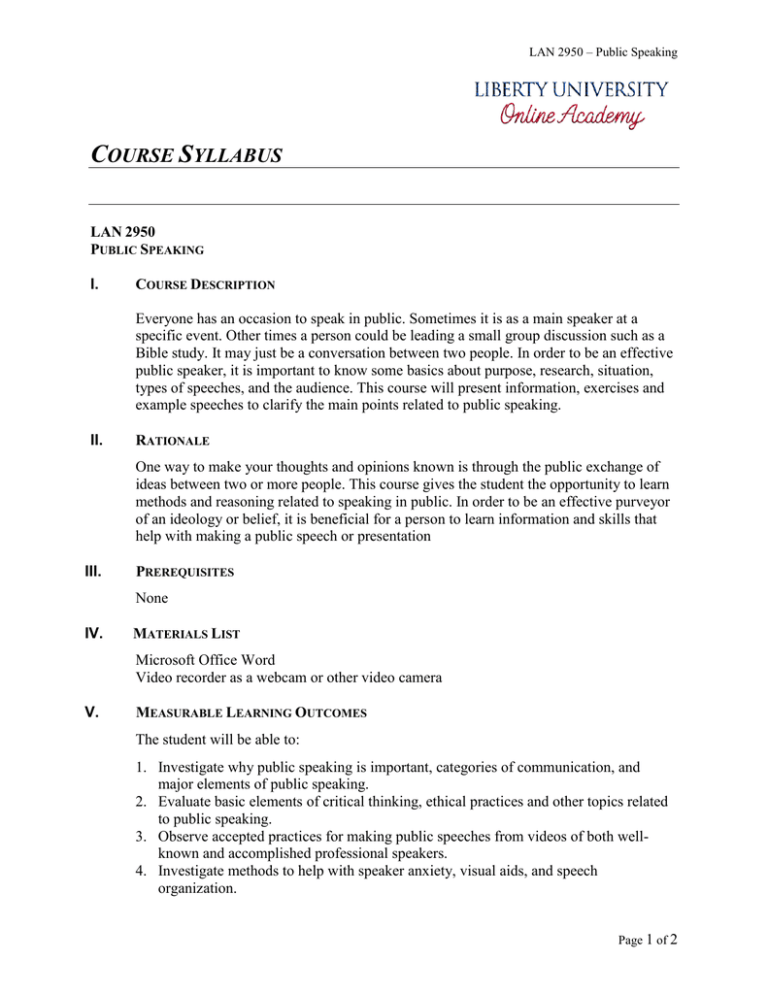
LAN 2950 – Public Speaking COURSE SYLLABUS LAN 2950 PUBLIC SPEAKING I. COURSE DESCRIPTION Everyone has an occasion to speak in public. Sometimes it is as a main speaker at a specific event. Other times a person could be leading a small group discussion such as a Bible study. It may just be a conversation between two people. In order to be an effective public speaker, it is important to know some basics about purpose, research, situation, types of speeches, and the audience. This course will present information, exercises and example speeches to clarify the main points related to public speaking. II. RATIONALE One way to make your thoughts and opinions known is through the public exchange of ideas between two or more people. This course gives the student the opportunity to learn methods and reasoning related to speaking in public. In order to be an effective purveyor of an ideology or belief, it is beneficial for a person to learn information and skills that help with making a public speech or presentation III. PREREQUISITES None IV. MATERIALS LIST Microsoft Office Word Video recorder as a webcam or other video camera V. MEASURABLE LEARNING OUTCOMES The student will be able to: 1. Investigate why public speaking is important, categories of communication, and major elements of public speaking. 2. Evaluate basic elements of critical thinking, ethical practices and other topics related to public speaking. 3. Observe accepted practices for making public speeches from videos of both wellknown and accomplished professional speakers. 4. Investigate methods to help with speaker anxiety, visual aids, and speech organization. Page 1 of 2 LAN 2950 – Public Speaking 5. Be evaluated by uploading speeches to the curriculum. 6. Investigate the need for supporting details when making informative speeches and how to avoid plagiarism. 7. Put into practice skills and principles of public speaking into every day life. VI. COURSE REQUIREMENTS AND ASSIGNMENTS i) Individual lesson assessments (1 per lesson) ii) 1 - 4 Quizzes per Module iii) 1 Test per Module iv) 1 Final Exam VII. COURSE GRADING AND POLICIES A. Grading Weights Lesson Assignments Quizzes and Written Assignments Tests B. 25% 35% 40% Scale A B C D F 93 – 100 85 – 92 77 – 84 70 – 76 Below 70 VIII.Other Policies A. B. Academic Misconduct See your Student Handbook for specifics. Repeating Assignments Students may repeat each lesson once. Quizzes and tests cannot be repeated to gain a higher grade. Quizzes and tests may be reset for technical issues, but a new set of questions will be generated. Page 2 of 2
